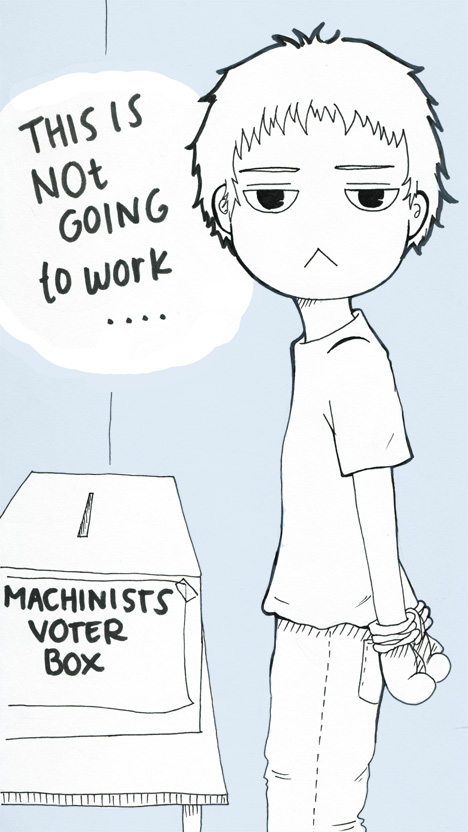Machinists stuck between Boeing and a hard place
By Brittany Hale
On Friday, January 2, machinists in Seattle, Everett, and Portland took a difficult vote on a contract that would guarantee their right to build the new 777. Their choice was complex: Accept a new contract that cut member’s pensions and replaced them with 401k’s, or risk being out of a job when their current contract ends in 2016. After machinists rejected an earlier deal, Boeing began shopping for another city in which to build the 777. Potential cities seeking those valuable jobs lined up eagerly, more than twenty in total, according to Reuters.
The vote narrowly passed with only 51 percent of machinists approving the new deal. Many others who voted ‘no’ were urged to do so by local union leaders who insisted that losing their pensions was unnecessary – Boeing has only gained in profitability, something that machinists should share in. On the national level, union leaders supported the contract and most likely stirred up enough votes to ensure a win.
There’s no doubt that this contract feud with Boeing put machinists in a precarious situation. Essentially, their options were to stick it to the man and perhaps lose their jobs to other, less wily machinists somewhere else in the country, or make an important concession by giving up pensions, something that national union chief Tom Buffenbarger once called “a sacred, sacred benefit” that machinists “do not give up without a fight.”
Buffenbarger pushed publicly for union members to accept the new contract, His about–face on pensions, signals how dire the situation of American workers has become. Many IAM workers described losing their pensions as a ‘huge blow’ and something that can’t be reclaimed. Pensions, it seems, are becoming a thing of the past.
I can understand why many machinists ultimately voted ‘yes.’ Like them, I saw the coverage on the numerous cities lining up to court Boeing, all promising tax breaks and other incentives to the company. It scared workers and legislators alike, none of whom want to see those jobs and that revenue go elsewhere. However, I don’t understand why union members should have to make concessions to a company as profitable as Boeing.
The decision to accept the contract is good for engineering students, especially those who intend on applying at Boeing. The contract ensures that Boeing will be staying in Seattle until at least 2024. On the other hand, the loss of pensions is something that current employees must grapple with. There are negative implications for regular, non-union workers as well. If a powerful local like the IAM is on the defensive and making concessions, the outlook is grim for average workers without any union representation.

